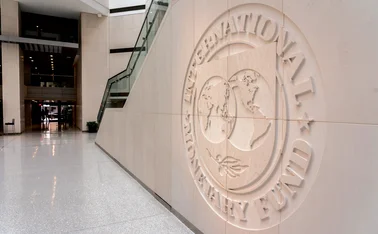
ECB in danger of being forged from fiscal fragility
Forged from fiscal fragility

Mario Draghi has made a significant impact during his first year as president of the European Central Bank (ECB). The former executive at Goldman Sachs – whose alumni will run Europe’s two biggest central banks when Mark Carney takes over from Mervyn King as governor of the Bank of England in July – clearly understands financial market sentiment. His longer-term refinancing operations (LTROs) programme in November last year pulled Europe and the world back from a financial precipice and kick-started European interbank markets.
Many parties were not happy with LTROs, pointing out that the three-year maturity attached to the programme was far too long. But Draghi felt the risks were appropriate given the gravity of the funding situation and has worked tirelessly ever since to restore confidence in the euro area. The latest addition to his market actions, agreed in August, was for outright monetary transactions (OMTs) that permit the ECB to buy sovereign euro bonds in the secondary market to eliminate excessive spreads caused by fears of a euro area collapse. Draghi is also pressing hard for the creation of a banking union in Europe to break the links between troubled European banks and fiscally challenged sovereign states, and appears determined to place the ECB at its core, via the single supervisory mechanism (SSM).
But is there a danger that Draghi, a former Italian Treasury and World Bank official, is creating a central bank in Europe more geared to aiding the fiscal failures of European governments than fulfilling the monetary policies needed to create price stability in the euro area?
Seeds of destruction
History shows that part of Europe’s problems lie with governments not meeting fiscal deficit rules. European governments are now failing to take sufficient fiscal actions to remedy the situation, either because they cannot (in the case of governments with unsustainable levels of debt), or because they will not (in the case of creditor nations such as Germany, which has elections in 2013). That is a root cause of the prevailing fragile confidence in the euro area. It is expedient for governments to have the ECB fulfil some of these responsibilities – as there is no need to secure voter approval. But could the steps being taken now not only sow the seeds of destruction for an operationally independent central bank, but also the eurozone itself?
These issues are being hotly debated among the euro area’s creditor countries, whose taxpayers would share any realised balance sheet losses linked with the Eurosystem – irrespective of fiscal prudence by their own citizens. In public (although other national central banks have voiced concerns in private at the ECB), the Deutsche Bundesbank, whose price stability mandate proved a source of stability for Germany during the past few decades, has proven most vocal.
German central bankers fully understand that in times of crisis central banks need to take on more risks. They are not opposed to balance sheet expansion, per se. But Bundesbank officials do believe public institutions need to follow rules, and not just when it is convenient. They fear that by using the excuse of protecting price stability, while at best playing lip-service to the rules, the ECB is taking on new mandates that it is not necessarily best placed to fulfil. This would be a worry even for a central bank that was linked closely to its own national treasury, but is even more so when the liabilities do not fall evenly in the euro area.
Draghi is aware of the concern. He has lobbied hard in Germany during the past couple of months to explain that inflation is under control in the eurozone. He has also been at pains to explain that the ECB will only buy sovereign bonds on the secondary market and is therefore not using monetary financing to support weak governments. But some of his arguments do appear somewhat shallow. For example, it is not difficult to envisage a scenario where banks in a troubled eurozone country purchase the primary issuance of sovereign bonds in the knowledge that the ECB will then buy the bonds from them in the secondary market.
More powers for the ECB
The Bundesbank also favours a European banking union. The concern is that a major supervisory role looks set to be given to the ECB. There are some obvious advantages of a centralised banking supervisor – for example, in taking necessary action against politically important regional or national banks. However, giving the ECB the role appears contrary to the European Commission’s own high-level expert group on the future of European banking supervision, led by Jacques de Larosière. The de Larosière report was against a micro-supervisory role for the ECB among other matters because acting in the area of micro-supervision could impinge on the ECB’s monetary stability mandate, supervisory support would involve finance ministry dealings that could potentially challenge the ECB’s independence and the ECB has no competence at supervision.
There are also serious legal issues, including whether or not it is possible to create a responsible body that is not stated in primary law – and ultimately leading to the threat of a supervised entity gaining a court order blocking its regulator from taking action. There is also concern that the ever-widening market operations and supervisory activity by the ECB in response to market events means it is already losing credibility. Does Draghi enjoy universal belief when he says there is nothing more to come should OMTs fail – or would market participants expect another ‘quick fix’, rather than watch the eurozone collapse?
There is also the risk that as the ECB stretches its role, the likelihood that the central bank will make a mistake related to OMTs, collateral rules or banking supervision increases. This could have a profound effect on confidence in the central bank in the future.
That said, European citizens are getting tired of the crisis. They are confused by the array of relatively complex matters being debated, such as net present values, the payments system, debt restructuring, haircuts, balance sheets and other matters that ultimately affect the shifting of liabilities onto taxpayers. They want an end to the crisis and see Draghi as furthering that aim.
However, the euro area is held together by a set of ideals bound, to an extent, by rules. If those rules are increasingly open to reinterpretation, it could have a lasting corrosive effect on monetary union. Fickle taxpayers may ask ‘what was the legitimacy of the actions taken by the central bank?’.
More hard choices will be required. But, ultimately, for a union in Europe to work, there must be a core set of values that must not be violated.
Only users who have a paid subscription or are part of a corporate subscription are able to print or copy content.
To access these options, along with all other subscription benefits, please contact info@centralbanking.com or view our subscription options here: http://subscriptions.centralbanking.com/subscribe
You are currently unable to print this content. Please contact info@centralbanking.com to find out more.
You are currently unable to copy this content. Please contact info@centralbanking.com to find out more.
Copyright Infopro Digital Limited. All rights reserved.
As outlined in our terms and conditions, https://www.infopro-digital.com/terms-and-conditions/subscriptions/ (point 2.4), printing is limited to a single copy.
If you would like to purchase additional rights please email info@centralbanking.com
Copyright Infopro Digital Limited. All rights reserved.
You may share this content using our article tools. As outlined in our terms and conditions, https://www.infopro-digital.com/terms-and-conditions/subscriptions/ (clause 2.4), an Authorised User may only make one copy of the materials for their own personal use. You must also comply with the restrictions in clause 2.5.
If you would like to purchase additional rights please email info@centralbanking.com








